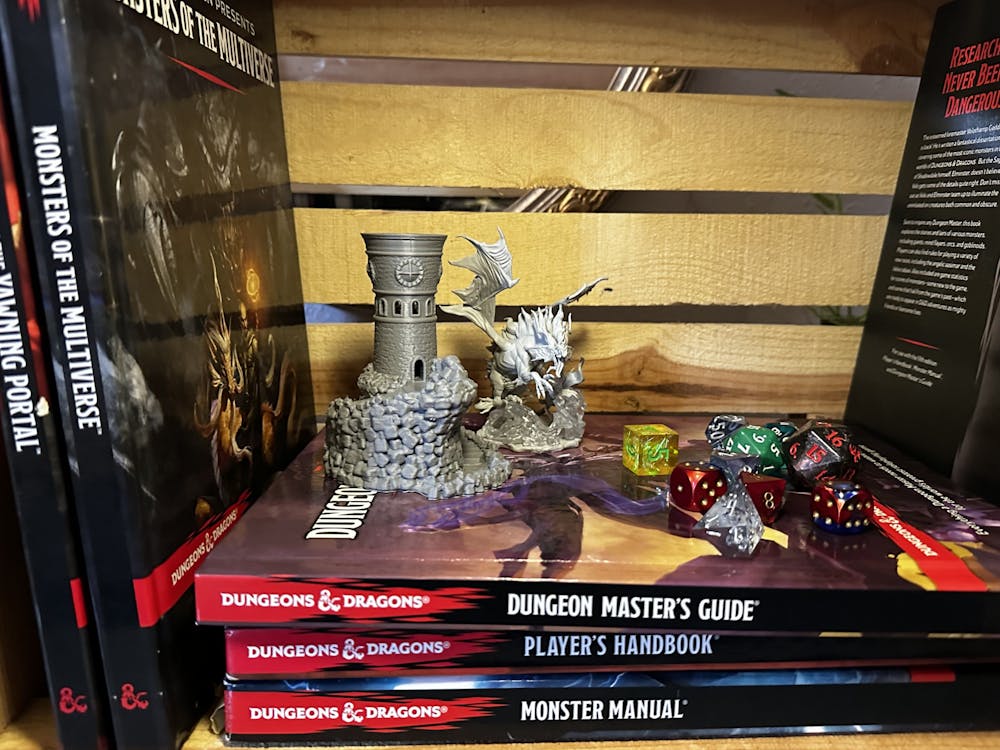Stories come in many shapes and sizes. It’s difficult to discern the best way to tell one, but I think I’ve found it. That would be none other than a little game called Dungeons and Dragons, or DnD, that came out in 1974 and pioneered a new medium for storytelling.
I’m aware that’s a big claim. Movies can bring a story to life in front of your eyes. Books conjure life from pen and paper. However, nothing can match the collaborative, character-driven greatness of DnD.
It’s that collaborative aspect of DnD that gave me my initial revelation. You can watch a movie with a group of friends or you can join a book club. Great, you’re enjoying a story in a social setting.
The difference with DnD is you’re creating the story together.
“You simultaneously co-author and audience a story, and that experience can be powerful,” said Harlin Steele, a PhD candidate at the University of California Davis and a former instructor at Western Washington University who taught Games as Literature. “We become participants in exploring a storyworld, advancing a narrative and developing characters, and we also have more power to focus on the things we find meaningful in the story.”
This collaborative approach places the story’s world in your hands. Pushing the narrative forward with people beside you is such a rewarding experience.
In other forms of storytelling, you experience plot points as a line, like following a trail. Through roleplaying and player creativity, DnD turns plot beats into an open field for you and your party members to explore.
“In video games, you are constrained by the programming that the developers set, but in roleplaying games you don’t have that constraint,” said Caleb Lee, the lead officer of Western’s Natural 20 Tabletop RPG Club. “You have an agreed-upon set of rules that dictate the outcomes of your decisions, but you can do almost anything in the game.”
In DnD you are free to tell whatever story you’d like. Your actions are limited only by your mind.
It’s widely known that dull characters make for a dull story. That gives DnD a unique angle because the audience participates in the story – they are the characters.
“Being a character in Dungeons and Dragons makes the storytelling a lot more immersive,” said Emily Sabisch, a third-year Western student and first-time DnD player. “Since the players create the characters, there’s more emotion. There is no main character, so it’s easier to care about all the characters.”
I’ve given DnD a lot of praise. While it has earned every ounce of that and more, there are critiques out there that I want to address.
We’ve all rooted for those same DnD playing nerds in “Stranger Things,” and at its basic mechanics, DnD is just a game. How can a game stand up to the beautiful works of literature and art that other storytelling mediums have produced?
I leave it to Steele to argue against that critique.
“By treating games as literature, we can enrich our understandings of literary themes and authorial intent while unpacking how game mechanics are a form of rhetoric,” Steele said.
Humans are the creators of art and DnD is just another outlet for that art. If you have never played DnD, I beg you to try it. There are very few things that pull at your emotions and build a community in the same way that Dungeons and Dragons can.
John Oakes (he/him) is an opinions reporter for The Front this quarter. In his free time, he writes fiction and not much else. You can find his work in Etherea Magazine as well as other venues. You can reach him at johnoakes.thefront@gmail.com.






